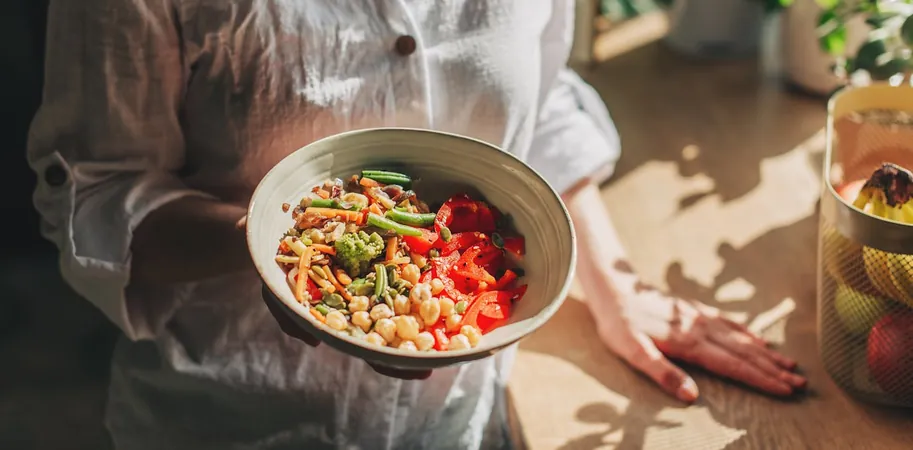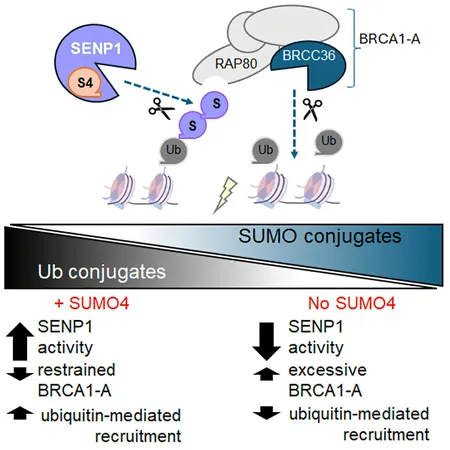
Transform Your Diet and Tackle Endometriosis Pain: Here’s What New Research Reveals!
2025-04-11
Author: Olivia
Unraveling Endometriosis: The Painful Truth
Endometriosis affects about 10% of women of reproductive age, manifesting as a debilitating chronic inflammatory condition where tissue resembling the uterine lining grows outside the uterus. This can lead to severe symptoms like chronic pain, bloating, and fertility challenges, significantly impacting the quality of life.
Exploring Dietary Solutions
While medications and surgeries are commonly used to manage endometriosis, many women still grapple with recurring symptoms. This has driven a surge in interest toward complementary therapies, particularly dietary modifications and supplements.
A Game-Changing Study
Recent research from the University of Edinburgh examined how specific dietary alterations impact pain levels for those suffering from endometriosis. The findings are promising: cutting back on dairy, gluten, caffeine, and alcohol might indeed provide relief.
The Research Breakdown
Researchers conducted an extensive online survey, gathering responses from 2,388 women with confirmed endometriosis. The results were eye-opening: 84% had made dietary changes, with 67% reporting pain relief. 59% utilized supplements, and 43% found these beneficial.
Top Dietary Changes for Pain Relief
Here’s a snapshot of the changes that delivered results for many women:
- **Alcohol Reduction**: Improved pain for 53% of participants.
- **Gluten Cutting**: Benefited 45%.
- **Dairy Decrease**: Reported improvements by 45%.
- **Caffeine Reduction**: Helped 43%.
- **Less Processed Sugar**: Positive effects noted in 41%.
- **Processed Foods Cutback**: Benefited 38%.
- **Low FODMAP Diet**: Provided relief for 32%.
- **Mediterranean Diet Adherence**: Reported benefits by 29%.
What's on the Supplement Menu?
Women also turned to supplements, with notable effects found in:
- **Turmeric/Curcumin**: Improved pain for 48%.
- **Magnesium**: Benefited 32%.
- **Peppermint**: Helped 26%.
- **Ginger**: Improved pain for 22%.
Cautions and Considerations
This observational study, while illuminating, has its limitations. The findings suggest correlations between diet and pain relief rather than definitive causation. Self-reported data can also lead to inaccuracies.
Why Does This Work?
Given the inflammatory nature of endometriosis, it makes sense that many dietary modifications with anti-inflammatory properties could offer relief. Both the Mediterranean and low FODMAP diets have roots in minimizing inflammation, supported by some earlier research.
The Bottom Line: What Should You Do?
For those navigating the challenges of endometriosis, consider adopting a Mediterranean or low FODMAP diet, while reducing alcohol, sugar, and processed foods. Not only could these dietary shifts alleviate pain, but they may also promote overall health.
However, caution is warranted with some recommendations, such as eliminating dairy which could impact calcium intake crucial for bone health. Seek professional guidance from a registered dietitian to tailor dietary changes that ensure nutritional balance.
Lastly, while experimenting with supplements like turmeric, ginger, or magnesium, it's wise to introduce them one at a time to identify the most effective options for you.
Embrace Dietary Changes for Better Health!
This new research opens exciting avenues for managing endometriosis pain. By strategically altering your diet and exploring supplements, you may discover significant relief and an improved quality of life!









 Brasil (PT)
Brasil (PT)
 Canada (EN)
Canada (EN)
 Chile (ES)
Chile (ES)
 Česko (CS)
Česko (CS)
 대한민국 (KO)
대한민국 (KO)
 España (ES)
España (ES)
 France (FR)
France (FR)
 Hong Kong (EN)
Hong Kong (EN)
 Italia (IT)
Italia (IT)
 日本 (JA)
日本 (JA)
 Magyarország (HU)
Magyarország (HU)
 Norge (NO)
Norge (NO)
 Polska (PL)
Polska (PL)
 Schweiz (DE)
Schweiz (DE)
 Singapore (EN)
Singapore (EN)
 Sverige (SV)
Sverige (SV)
 Suomi (FI)
Suomi (FI)
 Türkiye (TR)
Türkiye (TR)
 الإمارات العربية المتحدة (AR)
الإمارات العربية المتحدة (AR)